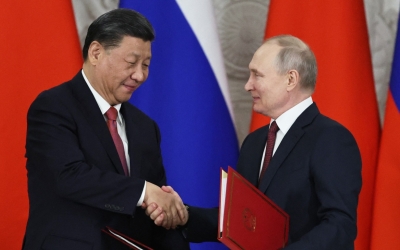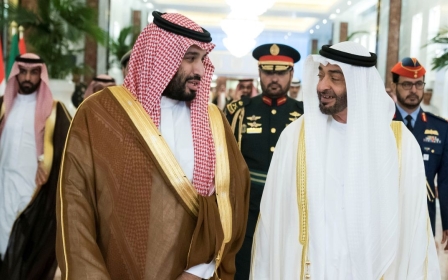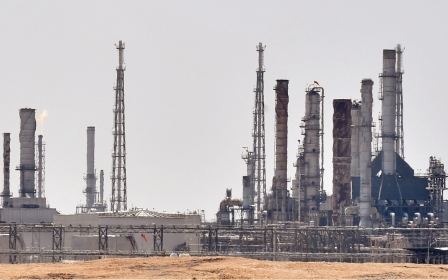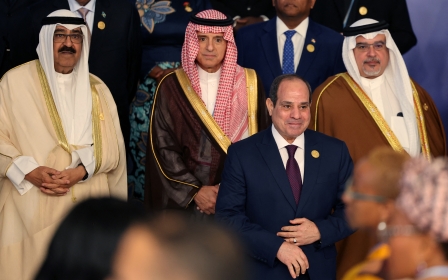Oil powers to slash production by more than one million barrels per day
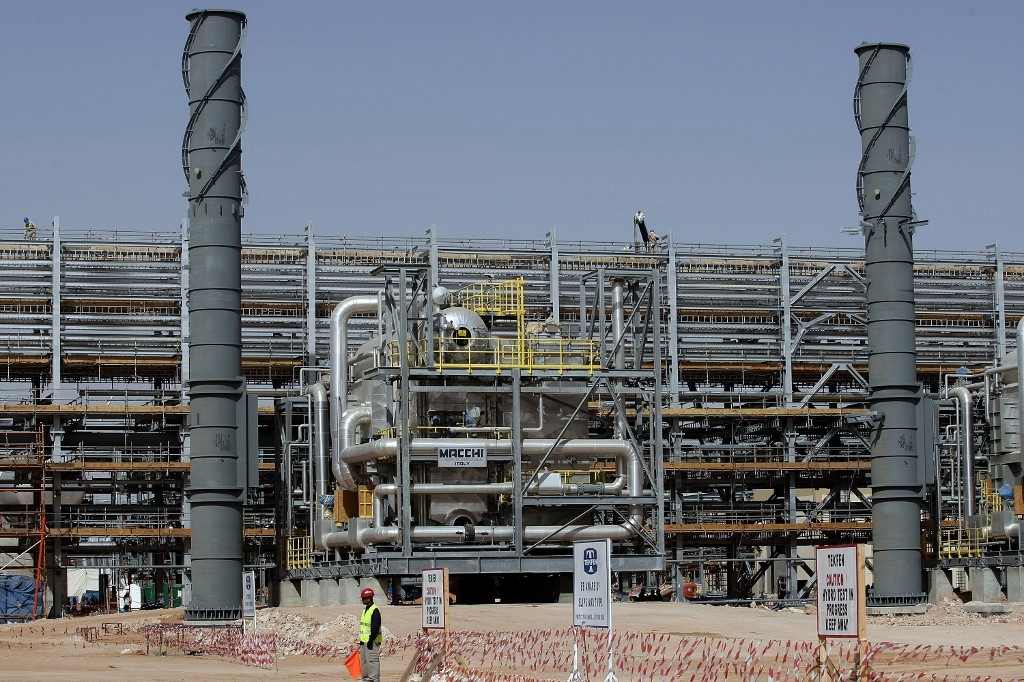
Saudi Arabia and other OPEC+ oil producers on Sunday announced voluntary cuts to their production amounting to around 1.15m barrels per day in a surprise move they said was aimed at supporting market stability.
The move came despite US pressure to pump more crude.
Cuts by the Saudis, Iraq, UAE, Kuwait, Algeria and Oman from May to the end of the year will total more than one million barrels per day - the biggest reduction since the OPEC+ cartel slashed 2m barrels per day in October.
Russia, a member of OPEC+, said it was also extending its cuts of 500,000 barrels per day to the end of this year, calling it "a responsible and preventive action".
A Saudi energy ministry official "emphasised that this is a precautionary measure aimed at supporting the stability of the oil market", the official Saudi Press Agency said.
New MEE newsletter: Jerusalem Dispatch
Sign up to get the latest insights and analysis on Israel-Palestine, alongside Turkey Unpacked and other MEE newsletters
The cuts follow a drop in oil prices triggered by jitters over the banking sector, following the collapse of US lender SVB and UBS's hurried buy-out of troubled rival Credit Suisse, UAE-based oil expert Ibrahim al-Ghitani told AFP.
Brent crude oil prices, trading just below $80 a barrel late last week, should bounce to above $80 as a result of the reductions, he said, calling prices below $80 "unacceptable" for OPEC+.
"The producing countries adhere to a balancing level that supports their large financial budget this year, and their next economic plans," Ghitani said.
'This voluntary initiative is a precautionary measure taken to ensure market balance'
- UAE Energy Minister Suhail bin Mohammed Al Mazrouei
The cuts were made public in a series of statements from the different countries.
The output reductions are on top of a controversial decision in October by OPEC and its allies including Russia - collectively known as OPEC+ - to slash production by two million barrels per day.
That reduction, the biggest since the height of the Covid pandemic in 2020, came despite concerns it would fuel further inflation and push central banks to hike interest rates even more.
"This voluntary initiative is a precautionary measure taken to ensure market balance," said UAE Energy Minister Suhail bin Mohammed Al Mazrouei, according to the official WAM news agency on Sunday.
Saudi Arabia will cut 500,000 barrels per day, Iraq 211,000, the UAE 144,000, Kuwait 128,000, Algeria 48,000 and Oman 40,000, each country announced.
US seeks more output
The statements came a day before OPEC+ is due to hold a Joint Ministerial Monitoring Committee meeting on Monday via videoconferencing, according to the UAE.
The cuts were announced despite calls from the United States to raise production as consumption rises and as China, the world's biggest oil consumer, reopens after its Covid shutdown.
"As world economies recover, we'll see more consumption. And therefore we'd like to see supply meet demand," said Jose Fernandez, the US undersecretary of state for economic affairs, energy and the environment, on the sidelines of the CERAWeek energy conference, in Houston, Texas, last month.
"We would like to see more supply" of crude globally, including from OPEC+, Fernandez said.
OPEC+ consists of the 13 members of the Organisation of Petroleum Exporting Countries and 11 non-OPEC allied countries.
US President Joe Biden has regularly called for an increase in the OPEC+ output after Russia's invasion of Ukraine sent prices soaring.
OPEC also raised its world oil demand forecast for 2023 in February, saying it expected demand to grow by 2.3m barrels per day to an average of 101.87m barrels per day this year.
Middle East Eye delivers independent and unrivalled coverage and analysis of the Middle East, North Africa and beyond. To learn more about republishing this content and the associated fees, please fill out this form. More about MEE can be found here.


